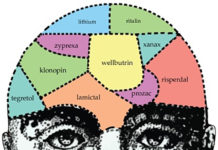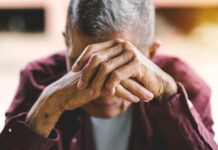Finding the Meaning in Suffering: My Experience with Coming off Psychiatric Drugs (in a...
For the last month or so, Mad in America has been hard at work building a directory of “mental health” providers across North America (and eventually, we hope, the world) who will work with people wanting to come off psychotropic drugs. I’ve been honored to have been tasked with the responsibility of building this directory, and I have to say, it’s been inspiring to talk to people all over the country who do this work, and who “get it”.
MIA Update: Our Parent Resources Initiative and More
Regular MIA readers may have noticed that we recently added a content box on the front page titled “Parent Resources.” This initiative has been a long time coming, and it is one that we hope will help us reach—and serve—a new group of readers. Many parents writing to us are desperately looking for a way out of the conventional system.
INTAR India 2016: Community Development and Human Liberation
We are here to challenge how this thing called madness and mental health is in fact a reflection and a relationship, to redefine how society responds, and to insist that in the definition of madness we also see a reflection of the society looking at it.
Killjoy: The Story of a Misguided ‘Mental Health’ Bot
The bot was created by one Danny Freed, inspired by the suicide of his close friend a few years prior. Danny reportedly balks at calling Joy a ‘bot,’ and refers to it instead as a “mental health journaling service.” Joy operates through Facebook’s system and auto-chats you at least once a day to check in.
Where’s the Outrage?
One of my problems with Mad In America is that not enough seem quite mad enough. I would like to encourage more outrage. I feel that if we were talking about a situation in another country, the US would be outraged. If we were talking about a common substance (like Big Macs), there would be outrage. If it were a business, citizens would be outraged and the government would intervene and shut it down. What is the “it” that I’m talking about?
Inside the Neuroscience Community: Peter Sterling Responds to Awais Aftab
Dr. Aftab objects to my "tirade against psychiatric neuroscience." What Dr. Aftab does not do is address any of my substantive conclusions.
My 6-year Anniversary Off Psych Drugs: How I Made It Through the Darkest Times
Last week was my anniversary off a huge psych drug cocktail I’d been on for 20 years. In this video I speak to the inner resources that kept me going. The fact is there is nothing in society to help those who love us to understand what we are going through.
A CALL TO ACTION: The Murphy Bill Passed the E&C Committee but the Fight Is...
As you read this, people with lived experience all around the country are mobilizing to educate our federal legislators about why the Helping Families in Mental Health Crisis Act (H.R. 2646) should be defeated. Education is the key. As executive director of the National Coalition for Mental Health Recovery, I am issuing a call to action. We need to ramp up our efforts before this backward piece of legislation becomes law. We need to get in touch with our legislators and their staffs, contact the media, make some noise! We need to exercise the proverbial strength in numbers. And we need all of this now!
Finding and Funding Our Way, Outside the System
There's a growing (and soon to be quickly growing) group of us who are not therapists or psychiatrists but who offer “coaching,” connection and support. We offer this support to those coming off psychiatric drugs, or who would like to, or are opting to not go on in the first place but are facing pressure to. Most of us are psychiatric survivors so a lot of our knowledge and information is from firsthand experience. Others may have never been on psychiatric drugs but know a lot about the ins and outs of withdrawal through close association with those who have.
Guilty
A little over a year ago, there was consternation in psychiatric circles as a French psychiatrist, Daniele Canarelli was found guilty after her patient hacked a man to death. She had not recogized the hazard he posed. Doctors didn’t like the implications they saw. In a series of lectures I have raised the question as to how long it might be before doctors would be found guilty for a suicide or homicide linked to an antidepressant, given that we have known that these drugs can cause suicide or homicide for over 50 years.
Elder Eyes Wide Shut
There is no universal moral code: Elder law and the injustice and inhumane practice of legal guardianship are a calculated effort by the court, the attorneys, and the healthcare system.
The Psychiatrist’s Dilemma: In Defense of Placebo Psychiatry
Telling stories they know are or may be untrue has become standard practice in psychiatry. It is a small step to set aside the need to provide truly informed consent.
Snail’s Pace Race
I live a slow paced life. I meditate every morning, refuse to get a smart phone (yet), and it takes me generous amounts of time to do things. This isn't because I am “stupid” or slow to get things. Sometimes I wonder how others get so much done each day - yet the quality and vibration of what I do is unique. It needs time. How does this relate with psychiatric drugs? Psych drugs are rooted in impatience, urgency, emergency.
What is Holistic Psychiatry?
Holistic psychiatry teaches that within each and every one of us there are great and latent powers, which are beyond the ordinary life. Daily progress in self-development is not the result of accident or chance, rather it comes from a steady practice of working on yourself.
An Opportunity for “Mad Caring”: David Oaks Needs Our Help
For decades, one of the most prominent voices for radical change, or “non-violent revolution” in mental health care has been David Oaks, former director of MindFreedom International. Many activists today were drawn into their work due to David’s influence. Robert Whitaker, for example has credited an interview he did with David in 1998 for propelling him into noticing and writing about the way psychiatric drugs were harming more than helping. My own journey in becoming outspoken on these issues has also been massively influenced by David’s activism and ideas, which is one reason I care strongly about the issue I am bringing up here. While David has been helpful, directly or indirectly, to so many of us, he now needs our help.
Does Stranger Mean Danger?
Are those diagnosed with “mental illness” more dangerous than other people? Or have we evolved to sense danger from anything that we believe to be different or "strange"?
The Spin Doctors: “ADHD” Research
We now spend over twenty billion dollars a year on treatment for something called “ADHD.” For that amount of money, we could pay the mid-career salaries of an extra 365,000 teachers or 827,000 teachers’ aides.
Psychiatric Diagnosis is a Fraud: The Destructive and Damaging Fiction of Biological ‘Diseases’
Everywhere you turn, you see “OCD, ASD, MDD, ADD, ADHD, BPD, GAD, PD, SAD, PTSD, NPD," etc. The problem is not limited to this acronym soup, but the pseudo diagnoses they represent. Patients today get stained by the specious medical diagnoses of biological psychiatry. And furthermore they are brainwashed to believe that these fictitious brain ‘diseases’ are genetic. Biological psychiatry treats people like they are mechanical objects, renaming them almost as they are re-branding products. The one I like the best is the renaming of ‘manic-depressive’ to ‘bipolar.’ Instead of a name which accurately describes the states of suffering, it was turned into something mechanical — a battery with two poles. We’ve gone from something human to something Frankensteinian.
The Curious Case of Empty Asylums and the Birth of Psychiatry
Psychiatry has cut, burned, shocked, drugged, and subdued its way through history—leaving behind compliance, not cures.
A Daughter’s Call for Safety and Sanity in Mental Health
My mother was once a bright, creative, beautiful young woman, a promising artist and a poet, who was captivated by the hippie movement. She was a creative bohemian artist, defying the conventions of our middle-class Jewish Midwestern family, which had carried a tradition of holding emotions inside and acting stoic. One day, soon after my grandparents’ divorce, she left. She hitched a ride to California, and from that point on, was never the same. The police picked her up on a park bench in Arizona, and she was committed for the first time at age 18. She rotated in and out of mental hospitals, the streets, and jail until her death.
Freud: The First Anti-Psychiatrist
Freud showed disdain for psychiatrists — he saw their untruthfulness and harmfulness. An antidote for the medical model’s infestation of our culture would be to reintroduce some of Freud’s theories to the public. After all, wouldn’t the medical model’s opposite be the best means of counteracting it?
Suicidal Thoughts, Psychiatric Diagnosis, and What Really Helps: Part One
This piece is the first of a two-part essay about suicide, diagnosis, what doesn't help, and what does help. This part is about suicide, diagnosis, and some of what fails to help.
Backsliding in the Bay State
The drumbeat for more "Risk Management" just gets louder. And nowhere is this so alarmingly evident as a new policy proposed by the Massachusetts Department of Mental Health (DMH) in November 2012.
STAR*D: Adding Fiction to Fiction
In my five plus years investigating STAR*D, I have identified one scientific error after another. Each error I found reinforced my search for more...
Paying Attention to ADHD Prescriptions in Your Community
A national study showed that ADHD drug abuse among U.S. high and middle school students has been rising for the past 20 years.






















